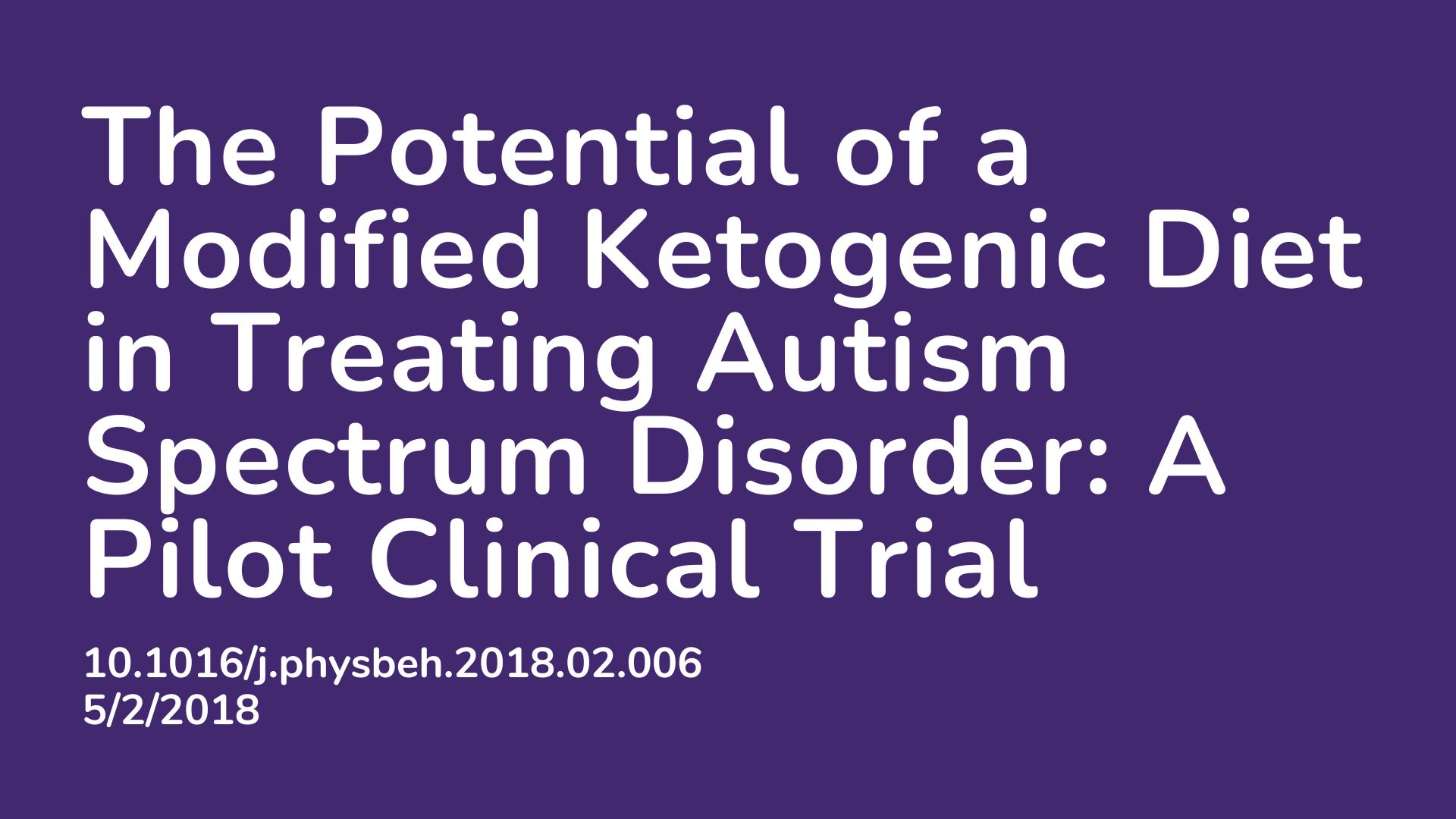Summary:
Autism spectrum disorder (ASD) is characterized by challenges in social communication and repetitive behaviors, as well as anxiety, attention issues, impulsivity, and self-injurious behavior. While therapists aim to improve these behaviors and communication skills, current treatments have limitations, and there’s a growing need for new interventions. Dietary interventions have emerged as a promising approach for treating neurodevelopmental disorders such as ASD. One such intervention is the ketogenic diet (KD), known for its success in reducing seizures in epilepsy patients. The KD alters brain metabolism by utilizing ketone bodies as fuel. Initial studies and clinical trials have suggested that the KD may also benefit individuals with ASD, with some improvements observed in behavior. However, more research is needed to fully understand its effectiveness and safety in this population. To address this gap, this paper is a pilot clinical trial to assess the feasibility and efficacy of a modified KD in children with ASD. The trial aimed to determine if three months on the modified KD could improve core ASD symptoms. The results showed that children who followed a modified ketogenic gluten-free diet supplemented with MCT showed significant improvements in core ASD symptoms after three months on the diet. At the six-month mark, participants also showed sustained improvement. In conclusion, a modified gluten-free ketogenic diet supplemented with MCT shows promise as a potential treatment option for improving the core features of ASD and merits further investigation.
Abstract:
Purpose: The ketogenic diet is a low-carbohydrate, moderate protein, high-fat diet that has emerged as a potential treatment for autism spectrum disorder. Autism spectrum disorder is a neurodevelopmental disorder of social communication, and restricted, repetitive behaviors and interests in need of novel therapies. An open-label clinical trial was done in Honolulu, Hawaii to test a modified ketogenic diet for improvement of core clinical impairments in children with ASD. Intervention: A modified ketogenic gluten-free diet regimen with supplemental MCT was completed in 15 children ages 2 to 17 years for 3 months. Clinical (ADOS-2, CARS-2) and biochemical measures were performed at baseline and 3-months on the ketogenic diet. Main outcome: Children administered a modified ketogenic gluten-free diet with supplemental MCT significantly improved core autism features assessed from the ADOS-2 after 3 months on diet (P = 0.006). No significant difference was observed in restricted and repetitive behavior score (P = 0.125) after 3 months on the diet protocol. Substantial improvement (> 30% decrease ADOS-2 total score) was observed in six participants, moderate improvement (> 3 units) in two participants, and minor/no improvement in seven participants. Ten participants assessed at a six-month time point sustained improvement in total ADOS-2 and social affect subdomain scores comparing baseline and 6 months (P = 0.019; P = 0.023), but no significant improvement in restricted and repetitive behavior scores were noted (P = 0.197). Significant improvements in CARS-2 items after 3 months of the modified ketogenic protocol were observed in imitation, body use, and fear or nervousness (P = 0.031, P = 0.008, P = 0.039). The percent change on ADOS-2 score from baseline to 3 months was associated with baseline high-density lipoprotein levels (ρ = −0.67, P = 0.007) and albumin levels (ρ = −0.60, P = 0.019). Moreover, the percent change from baseline to 3 months in ADOS-2 scores was significantly associated with percent change in high-density lipoprotein levels (ρ = 0.54, P = 0.049) and albumin levels (ρ = 0.67, P = 0.010). Conclusions: A modified gluten-free ketogenic diet with supplemental MCT is a potentially beneficial treatment option to improve the core features of autism spectrum disorder and warrants further investigation.
Article Publication Date: 5/2/2018
DOI: 10.1016/j.physbeh.2018.02.006



